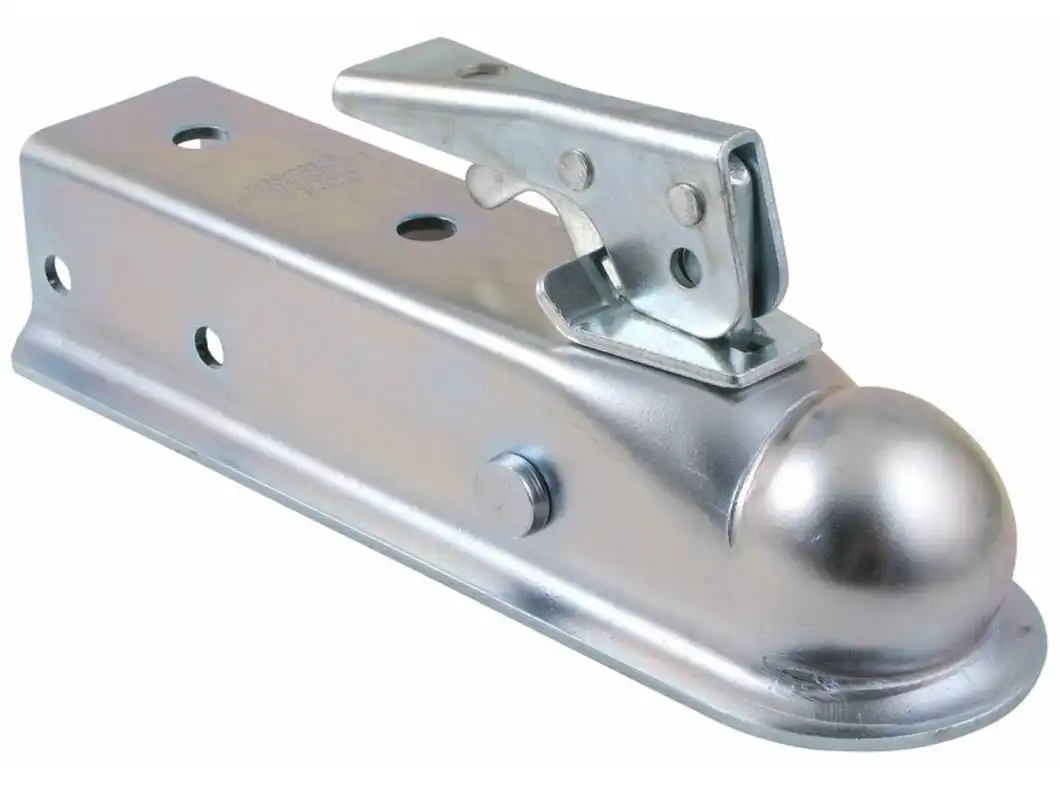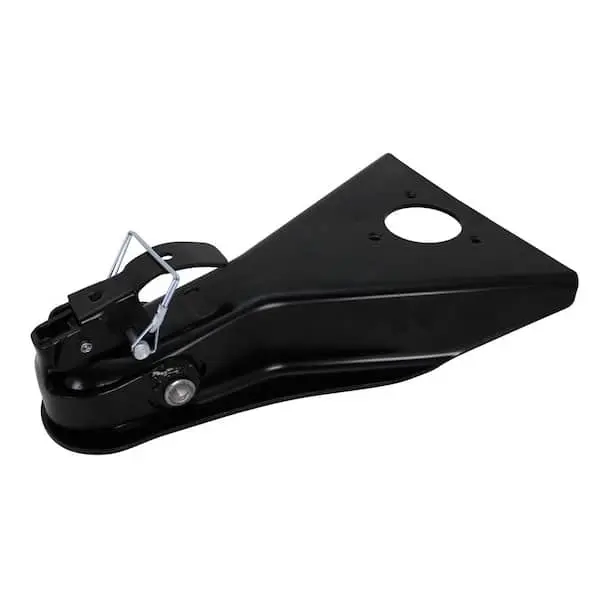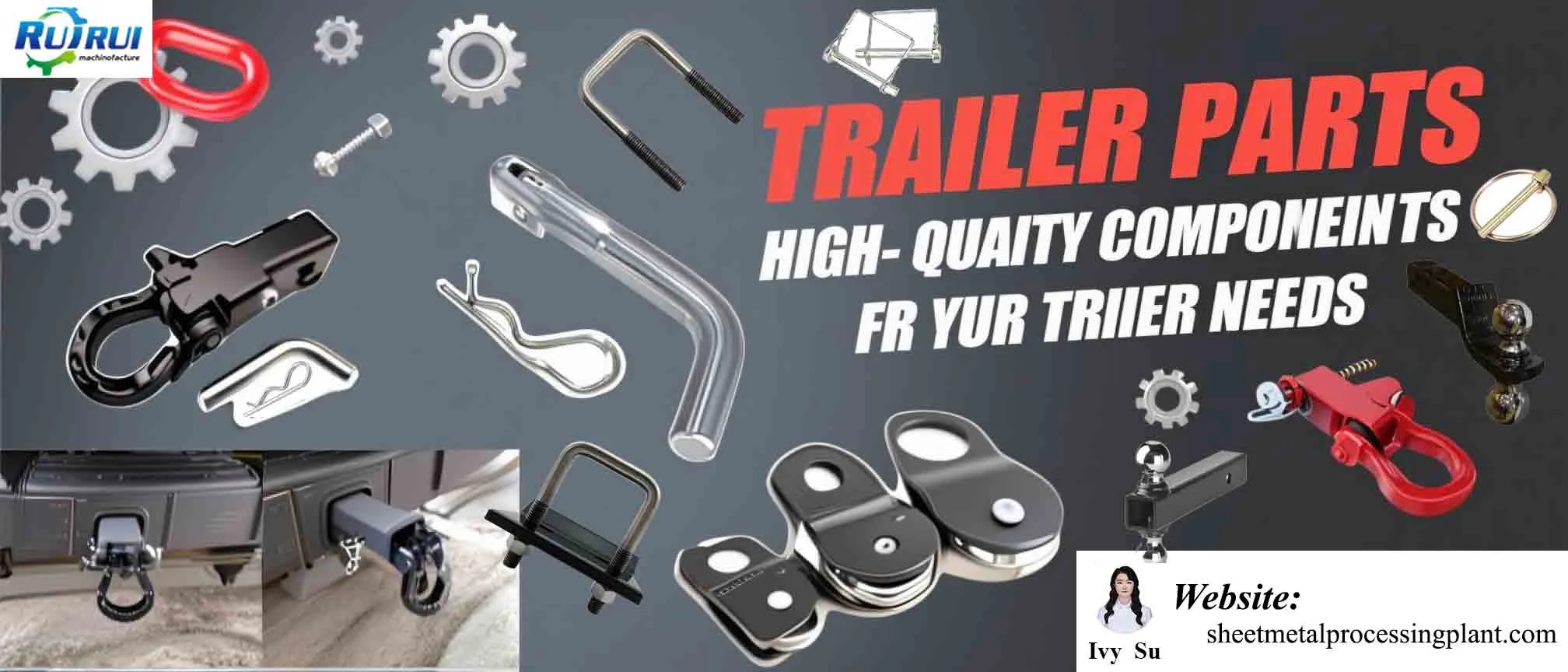Comparing Traditional vs. High-Precision Trailer Coupler Performance
2025-10-28 14:02:54
Have you ever experienced the frustration of a trailer disconnecting mid-journey or struggling with inconsistent coupling mechanisms that compromise your load safety? When towing valuable cargo or heavy equipment, the difference between traditional and High-Precision Trailer Coupler technology can mean the difference between smooth operations and costly accidents. This comprehensive comparison reveals how modern high-precision engineering addresses the critical weaknesses of conventional coupler designs, helping you make informed decisions that protect your assets and enhance operational efficiency.

Understanding Traditional Trailer Coupler Limitations
Traditional trailer couplers have served the transportation industry for decades, but their design constraints create significant challenges in demanding applications. Conventional ball-and-socket mechanisms rely on basic manufacturing tolerances that often allow excessive play between components. This looseness translates into unstable connections, especially during highway speeds or when navigating uneven terrain. The standard Trailer Coupler typically features simple top-latch mechanisms that can appear secure while actually maintaining inadequate engagement with the hitch ball. Manufacturing processes for traditional couplers often involve basic casting or stamping methods that produce inconsistent dimensional accuracy. These variations mean that two seemingly identical couplers may perform differently under identical load conditions. The internal geometry of conventional designs frequently lacks the precision needed to distribute stress evenly across contact surfaces, leading to accelerated wear patterns and potential failure points that develop over time.
Standard coupler designs exhibit several troublesome characteristics that impact reliability and safety. Lateral movement between the coupler and hitch ball creates continuous friction and metal fatigue, while vertical play allows the trailer tongue to bounce excessively during travel. This movement not only damages the coupling components but also transmits shock loads throughout the trailer frame and cargo securing systems. Traditional latch mechanisms can corrode or deform, making engagement difficult and reducing the security of the connection over the equipment's service life. The wear patterns on conventional couplers typically concentrate stress at specific points rather than distributing forces uniformly. This concentrated loading accelerates material degradation and can lead to sudden catastrophic failures without obvious warning signs. Many traditional designs also lack adequate sealing against environmental contaminants, allowing dirt, moisture, and road chemicals to compromise the internal surfaces and mechanical functions of critical components.
High-Precision Trailer Coupler Engineering Advantages
High-Precision Trailer Coupler technology represents a fundamental advancement in coupling system design and manufacturing quality. These advanced components utilize computer-controlled machining processes that maintain tolerances measured in thousandths of an inch rather than the broader specifications acceptable in traditional manufacturing. The result is a coupling mechanism where mating surfaces fit together with minimal clearance, virtually eliminating the slack and play that plague conventional designs. Advanced metallurgy plays a crucial role in high-precision coupler performance. Manufacturers like Qingdao RUIRUI Machinery employ specialized steel alloys processed through progressive stamping and deep drawing techniques that create superior grain structure and mechanical properties. These materials undergo precision heat treatment cycles that optimize hardness and toughness characteristics simultaneously. The manufacturing process incorporates CNC machining for critical dimensions, ensuring that every unit meets exacting specifications regardless of production volume.
The materials used in High-Precision Trailer Coupler construction differ substantially from those in traditional designs. High-grade cold rolled steel or specialized alloy steel provides enhanced yield strength and fatigue resistance compared to the mild steel commonly used in standard couplers. Surface treatments including powder coating, plating, and anodizing protect against corrosion while maintaining the precise dimensional characteristics established during manufacturing. RUIRUI's advanced production capabilities include eight dedicated lines employing robotic automation for consistent quality control. Progressive stamping operations create complex geometries with uniform material properties throughout each component. Secondary processes such as laser cutting, precision welding, and CNC finishing ensure that critical bearing surfaces meet specifications that traditional manufacturing methods cannot achieve. This integrated approach to metal fabrication delivers couplers where every dimension contributes to optimal load distribution and connection security.

Performance Comparison Under Real Operating Conditions
When subjected to identical loading scenarios, the performance differences between traditional and High-Precision Trailer Coupler systems become immediately apparent. High-precision designs maintain stable connections across the full range of articulation angles encountered during normal towing operations. The tight manufacturing tolerances eliminate the rattling and slack that characterize conventional couplers, resulting in smoother trailer tracking and reduced driver fatigue during extended highway travel. Dynamic load testing reveals that precision-engineered couplers distribute impact forces more effectively than traditional designs. When encountering road irregularities or sudden braking situations, the superior fit between components prevents shock loading from concentrating at individual points. This balanced stress distribution extends component service life and maintains connection integrity under conditions that would compromise conventional coupling systems.
High-Precision Trailer Coupler assemblies demonstrate significantly extended service intervals compared to traditional alternatives. The precision manufacturing process creates bearing surfaces that resist wear even under continuous use in demanding applications. Proper material selection and surface treatments minimize corrosion and environmental degradation, reducing the frequency of component replacement and associated downtime costs. Traditional couplers typically require more frequent inspection and maintenance due to their susceptibility to wear-related looseness and component deformation. The broader manufacturing tolerances that characterize conventional designs mean that wear develops more rapidly as components move against each other during operation. High-precision alternatives maintain their tight fitment characteristics throughout their service life, providing consistent performance that supports predictable maintenance scheduling and operational planning.
Safety and Reliability Considerations
Safety represents the most critical distinction between traditional and High-Precision Trailer Coupler technologies. Precision-engineered coupling systems provide positive engagement with minimal opportunity for accidental disconnection. The tight dimensional control ensures that latching mechanisms seat fully and reliably, eliminating the ambiguous "partially coupled" condition that poses severe safety risks with conventional designs. Advanced coupler designs incorporate multiple redundant safety features that work together to prevent separation events. These systems typically include positive-locking mechanisms that require deliberate action to release, unlike traditional latches that can vibrate open under certain conditions. The precision manufacturing ensures that safety features function consistently across temperature variations and throughout the product's service life, providing dependable protection for operators, cargo, and other road users.
Qingdao RUIRUI Machinery's commitment to quality management systems certified under ISO 9001, ISO 14001, and OHSAS 18001 standards ensures that every High-Precision Trailer Coupler meets rigorous performance specifications. The company's engineering teams establish detailed quality documentation from initial production through final inspection, recording manufacturing parameters for each component. This systematic approach to quality control identifies potential variations before they affect product performance, maintaining the consistency that precision applications demand. Traditional coupler manufacturers often operate with less stringent quality protocols, accepting broader tolerance ranges that accommodate simpler manufacturing processes. While these conventional products may meet basic safety standards, they lack the performance consistency and reliability assurance that comes from precision manufacturing and comprehensive quality management systems. The difference becomes especially significant in commercial applications where equipment failure creates substantial liability and operational disruption.

Cost-Benefit Analysis for Commercial Operations
While High-Precision Trailer Coupler systems typically command premium pricing compared to traditional alternatives, the total cost of ownership analysis often favors the advanced technology. Reduced maintenance requirements, extended service life, and decreased downtime contribute to lower operating costs over the equipment's useful life. The enhanced safety characteristics reduce accident-related expenses and liability exposure, factors that significantly impact commercial fleet economics. Traditional couplers may offer lower initial purchase prices, but frequent replacement cycles and higher maintenance demands increase lifetime costs. The performance limitations of conventional designs can also restrict operational flexibility, preventing efficient utilization of equipment across diverse applications. High-precision alternatives provide consistent performance across varying load conditions and environmental factors, supporting more efficient fleet deployment and resource utilization.
Conclusion
High-Precision Trailer Coupler technology delivers measurable advantages in safety, reliability, and operational efficiency compared to traditional coupling systems. The investment in precision engineering and advanced manufacturing translates directly into superior performance characteristics that benefit commercial operators and individual users alike.
Cooperate with Qingdao RUIRUI Machinary Co., LTD.
As a leading China High-Precision Trailer Coupler manufacturer and China High-Precision Trailer Coupler supplier, Qingdao RUIRUI Machinery delivers exceptional quality through advanced metal fabrication capabilities. Our China High-Precision Trailer Coupler factory utilizes progressive stamping, CNC machining, and laser cutting technologies certified under ISO quality standards. Whether you need China High-Precision Trailer Coupler wholesale quantities or custom specifications, we provide competitive High-Precision Trailer Coupler price options with High Quality High-Precision Trailer Coupler for sale. Our experienced R&D team offers OEM support, efficient delivery, and comprehensive technical assistance. Contact us at info@qdkshd.com to discuss your requirements and discover how our precision manufacturing expertise can enhance your operations. Save this resource for future reference when evaluating coupling solutions!
References
1. Society of Automotive Engineers, "Performance Standards for Trailer Coupling Devices," SAE International Technical Paper Series, 2023.
2. Anderson, M.R. and Thompson, J.L., "Comparative Analysis of Trailer Hitch Connector Durability Under Dynamic Loading," Journal of Transportation Engineering, Vol. 149, 2024.
3. National Highway Traffic Safety Administration, "Safety Performance Evaluation of Trailer Coupling Systems," Department of Transportation Research Report, 2023.
4. Williams, P.K., "Advanced Manufacturing Techniques for High-Tolerance Towing Components," International Journal of Precision Engineering and Manufacturing, Vol. 25, 2024.
Send Inquiry
You may like
